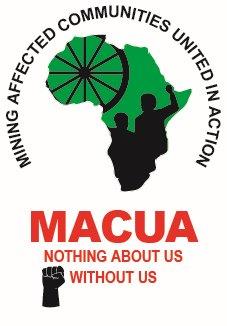
MACUA WAMUA ADVICE OFFICE
Joined May 2022
The MACUA WAMUA Advice Office (MWAO) was formed in 2019 based on a mandate from the social movements, Mining Affected Communities United in Action (MACUA) and Women Affected by Mining United in Action
The MACUA WAMUA Advice Office (MWAO) was formed in 2019 based on a mandate from the social movements, Mining Affected Communities United in Action (MACUA) and Women Affected by Mining United in Action (WAMUA).
The movements of MACUA & WAMUA were established in 2012 at a conference attended by over 150 community activists from across South Africa to focus on building and strengthening the agency of marginalized and excluded communities so that they are able to hold those in positions of power to account and to amplify the voices of affected communities at a national level given that mining affected communities are not represented in all statutory and regulatory bodies that make decisions on their behalf.
MACUA currently consists of over 50 branches across the country and includes 30 WAMUA groups and some branches also include Youth groups (8) who operate under the banner of Youth Affected by Mining United in Action (YAMUA)
Our mission is to have Advice Centres in communities affected by mining so that they can offer a safe space for women and vulnerable persons as well as act as a centre of activism from which communities are able to protect their land, livelihoods and resources and hold those in power to account.
MACUA and WAMUA has been collaborating with the Centre for Applied Legal Studies (CALS) to develop grassroots paralegal offices that will regularly receive legal training and that will be connected to a broader support network Our work aims to provide rural and marginalized communities with avenues to help local communities expand their capacity to be effective leaders, communicators, and organizers so that they are able to build their collective power to shape decisions that affect their land and rights in ways that are designed to reduce inequality, curb climate change and preserve the agency of communities.
